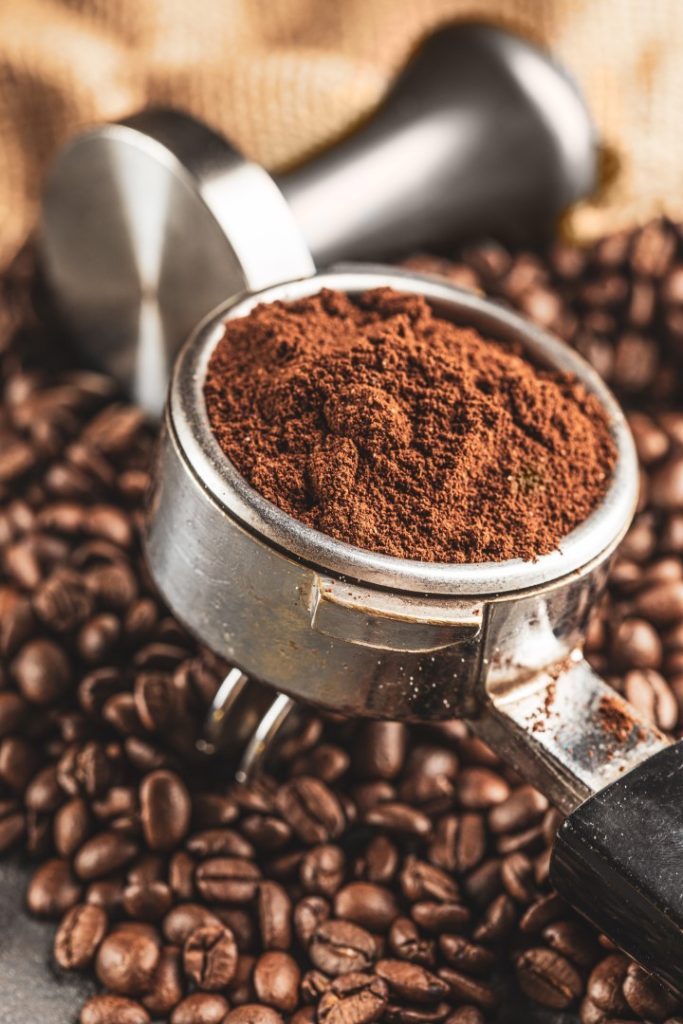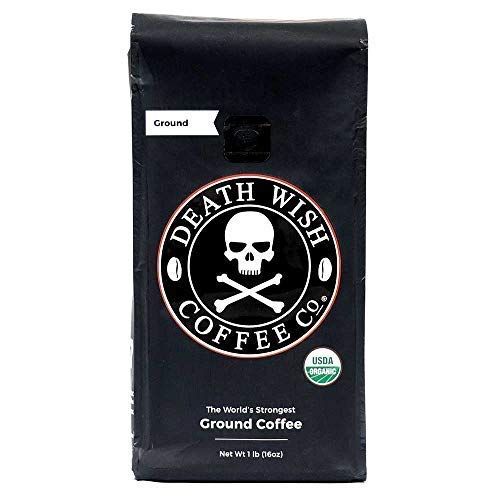The Benefits Of Espresso Coffee
I'm a big advocate of drinking coffee in the early hours of the morning, hell... it's been part of my morning routine for the last 10~ years.
I'm not talking about coffee with milk and sugar or artificial sweeteners - I'm talking about strong black coffee.
I've been reaping the benefits of espresso coffee.
It seems like every other day there's a reporter on the news going on about how good or how bad coffee is, constantly changing their opinions and views to get the public to watch these segments, essentially like click-bait.
All of that BS aside, what do published studies say about coffee?
Below you'll find 17 benefits of espresso coffee with studies to back them up.
From increased focus and memory to improved strength and cycling performance... time to brew another cup my friends.
Coffee Improves Time Trial Performance
“The purpose of this study was to examine the ergogenic benefits of Turkish coffee consumed an hour before exercise. In addition, metabolic, cardiovascular, and subjective measures of energy, focus and alertness were examined in healthy, recreationally active adults who were regular caffeine consumers (>200 mg per day).
Acute ingestion of TC resulted in a significant elevation in plasma caffeine concentrations within 30-min of consumption. TC ingestion resulted in significant performance benefits in reaction time and an increase in subjective feelings of energy in habitual caffeine users. No significant differences were noted in time for the 5 km between trials, however 60 % of the participants performed the 5 km faster during the TC trial and were deemed responders. When comparing TC to DC in responders only, significantly faster times were noted when consuming TC compared to DC. No significant benefits were noted in measures of cognitive function.”
The effect of an acute ingestion of Turkish coffee on reaction time and time trial performance by Church DD, Hoffman JR, LaMonica MB, Riffe JJ, Hoffman MW, Baker KM, Varanoske AN, Wells AJ, Fukuda DH, Stout JR.
Coffee Improves Performance During Endurance Exercise
“There is consistent evidence supporting the ergogenic effects of caffeine for endurance based exercise. However, whether caffeine ingested through coffee has the same effects is still subject to debate. The primary aim of the study was to investigate the performance enhancing effects of caffeine and coffee using a time trial performance test.
Performance times during the TT were significantly faster (~5.0%) for both caffeine and coffee when compared to placebo and decaf (38.35 ± 1.53, 38.27 ± 1.80, 40.23 ± 1.98, 40.31 ± 1.22 min respectively, p<0.05). The significantly faster performance times were similar for both caffeine and coffee. Average power for caffeine and coffee during the TT was significantly greater when compared to placebo and decaf (294 ± 21 W, 291 ± 22 W, 277 ± 14 W, 276 ± 23 W respectively, p<0.05). No significant differences were observed between placebo and decaf during the TT. The present study illustrates that both caffeine (5 mg/kg/BW) and coffee (5 mg/kg/BW) consumed 1 h prior to exercise can improve endurance exercise performance.”
The metabolic and performance effects of caffeine compared to coffee during endurance exercise by Hodgson AB, Randell RK, Jeukendrup AE.
Coffee Improves Sprint Cycling
“Performance enhancements may depend on varying individual responses to CAF. Athletes who are positive CAF responders may consider using coffee before competition to improve anaerobic performance.”
Effect of Caffeine on Sprint Cycling in Experienced Cyclists by Anderson DE, LeGrand SE, McCart RD.
Coffee Improves Power Performance
“Despite the demonstrated evidence of the importance of eccentric contractions in sports performance, no research has evaluated the ergogenic effects of caffeine on this type of contraction means during flywheel exercises. Therefore, the aims of the present study were to compare the power outcomes, using different inertial loads, between caffeine and placebo conditions.”
Thus, the supplementation of 6 mg·kg-1 caffeine may be considered to maximise on-field physical performance in those sports characterised by high demands of resistance.
Effects of Caffeine Supplementation on Power Performance in a Flywheel Device by Castillo D, Domínguez R, Rodríguez-Fernández A, Raya-González J.
Coffee Is A Great Pre-Workout Beverage
“One popular method of caffeine ingestion in nonathletes is coffee, with some evidence suggesting it is also utilized by athletes. In this article, we discuss the research pertaining to the use of coffee as an ergogenic aid, exploring (a) whether caffeinated coffee is ergogenic, (b) whether dose-matched caffeinated coffee provides a performance benefit similar in magnitude to caffeine anhydrous, and (c) whether decaffeinated coffee consumption affects the ergogenic effects of a subsequent isolated caffeine dose. There is limited evidence that caffeinated coffee has the potential to offer ergogenic effects similar in magnitude to caffeine anhydrous; however, this requires further investigation. Coingestion of caffeine with decaffeinated coffee does not seem to limit the ergogenic effects of caffeine. Although caffeinated coffee is potentially ergogenic, its use as a preexercise caffeine ingestion method represents some practical hurdles to athletes, including the consumption of large volumes of liquid and difficulties in quantifying the exact caffeine dose, as differences in coffee type and brewing method may alter caffeine content. The use of caffeinated coffee around exercise has the potential to enhance performance, but athletes and coaches should be mindful of the practical limitations.”
Is Coffee a Useful Source of Caffeine Preexercise? By Pickering C, Grgic J.
Coffee Improves Resistance Exercise Performance
“The aim of the present study was to determine the effect of ingesting caffeine dose-matched anhydrous caffeine, coffee, or decaffeinated coffee plus anhydrous caffeine during resistance exercise on performance.
Coffee and decaffeinated coffee plus caffeine have the ability to improve performance during a resistance exercise protocol, although possibly not over multiple bouts.”
Effect of Coffee and Caffeine Ingestion on Resistance Exercise Performance by Richardson DL, Clarke ND.
Coffee Will Make You A Faster Runner
“Caffeine, often in the form of coffee, is frequently used as a supplement by athletes in an attempt to facilitate improved performance during exercise.
The results of this study show that 60 minutes after ingesting 0.09 g·kg-1 of caffeinated coffee, 1-mile race performance was enhanced by 1.9% and 1.3% compared with placebo and decaffeinated coffee, respectively, in trained male runners.”
Coffee Ingestion Enhances 1-Mile Running Race Performance by Clarke ND, Richardson DL, Thie J, Taylor R.
Coffee Enhances Your Attention
Caffeine improves performance on simple and complex attention tasks, and affects the alerting, and executive control networks. Furthermore, there is inconclusive evidence on dose-related performance effects of caffeine, or the influence of habitual caffeine consumption on the performance effects of caffeine. Finally, caffeine's effects cannot be attributed to withdrawal reversal.
Caffeine as an attention enhancer: reviewing existing assumptions by Einöther SJ, Giesbrecht T.
Coffee Increases Fat Oxidation
“We investigated the effect of the combination of coffee ingestion and repeated bouts of low-intensity exercise on fat oxidation. Subjects were seven young, healthy male adults. They performed four trials: a single 30-min bout of exercise following ingestion of plain hot water (WS) or coffee (CS); a trial with three 10-min bouts of exercise separated by 10-min periods of rest following ingestion of plain hot water (WR) or coffee (CR). The coffee contained 5 mg kg-1 of caffeine. All trials were performed on a cycle ergometer at 40% maximal oxygen uptake for each subject an hour after beverage ingestion. Oxygen uptake in the CS and CR trials was higher compared with the WS and WR trials at 90 min after exercise (P<0·05). Respiratory exchange ratio (RER) in the CS and CR trials was decreased during the whole recovery period compared with baseline (P<0·05), whereas no significant decreases were observed in either the WS or WR trials. Moreover, RER was significantly lower at 30 min after exercise in the CR trial than in either the WS or WR trials (P<0·05 each). Similarly, it is notable that fat oxidation rate in the CR trial was significantly higher at 30 min after exercise compared to that in the WS and WR trials (P<0·05). These results suggest that the combination of coffee intake and repeated bouts of low-intensity exercise enhances fat oxidation in the period after exercise.”
Combined effect of coffee ingestion and repeated bouts of low-intensity exercise on fat oxidation by Kurobe K, Nakao S, Nishiwaki M, Matsumoto N.
Coffee Enhances Your Memory
“The Johns Hopkins researchers conducted a double-blind trial in which participants who did not regularly eat or drink caffeinated products received either a placebo or a 200-milligram caffeine tablet five minutes after studying a series of images. Salivary samples were taken from the participants before they took the tablets to measure their caffeine levels. Samples were taken again one, three, and 24 hours afterwards.
The next day, both groups were tested on their ability to recognize images from the previous day's study session. On the test, some of the visuals were the same as those from the day before, some were new additions, and some were similar but not the same.
More members of the caffeine group were able to correctly identify the new images as "similar" to previously viewed images rather than erroneously citing them as the same.”
Post-study caffeine administration enhances memory consolidation in humans by Daniel Borota, Elizabeth Murray, Gizem Keceli, Allen Chang, Joseph M Watabe, Maria Ly, John P Toscano & Michael A Yassa
Coffee Is Linked To A Reduction In Depression
“A new study led by Harvard School of Public Health (HSPH) researchers found that, among women, drinking coffee may reduce the risk of depression. The researchers, led by Michel Lucas, research fellow in nutrition, found the risk of depression to be 20% lower among women who drank four or more cups of caffeinated coffee than those who drank little or none. Those who drank decaf, tea, soft drinks, chocolate and other beverages containing less caffeine did not appear to be protected against depression.”
“Coffee, Caffeine, and Risk of Depression Among Women,” was published in the September 26, 2011, issue of the Archives of Internal Medicine.
Coffee Reduces Your Risk Of Heart Disease & Liver Disease
“There is a significant impact of coffee on the cardiovascular system, and on the metabolism of carbohydrates and lipids. Contrary to previous beliefs, the various forms of arterial cardiovascular disease, arrhythmia or heart insufficiency seem unaffected by coffee intake. Coffee is associated with a reduction in the incidence of diabetes and liver disease.”
The impact of coffee on health by Cano-Marquina , Tarín JJ, Cano A
Coffee Protects You Against Neurological Disorders
“Protection seems to exist also for Parkinson's disease among the neurological disorders, while its potential as an osteoporosis risk factor is under debate. Its effect on cancer risk depends on the tissue concerned, although it appears to favor risk reduction. Coffee consumption seems to reduce mortality.”
The impact of coffee on health by Cano-Marquina , Tarín JJ, Cano A
Coffee Improves Cognitive Function
“coffee consumption revealed its inverse correlation with that of diabetes mellitus, various cancer lines, Parkinsonism, and Alzheimer's disease. Moreover, it ameliorates oxidative stress because of its ability to induce mRNA and protein expression, and mediates Nrf2-ARE pathway stimulation. Furthermore, caffeine and its metabolites help in proper cognitive functionality.”
Coffee and its consumption: benefits and risks by Butt MS1, Sultan MT.
Coffee Will Make You Liver Longer
“A massive new British study, examining the coffee habits and longevity of nearly 500,000 adults, says there's an unmistakable across-the-board increase in longevity among people who drink lots of coffee.
The lower lack of risk of dying is seen as significant, although not radical. But overall, "coffee drinkers were about 10 percent to 15 percent less likely to die than abstainers during a decade of follow-up," according to an Associated Press report on the study.
"It's not clear exactly how drinking coffee might affect longevity. Lead author Erikka Loftfield, a researcher at the U.S. National Cancer Institute, said coffee contains more than 1,000 chemical compounds including antioxidants, which help protect cells from damage," the AP reported.”
Association of Coffee Drinking With Mortality by Genetic Variation in Caffeine Metabolism by Erikka Loftfield, PhD, Marilyn C. Cornelis, PhD; Neil Caporaso, MD
Coffee Protects Your Cardiovascular System
“An inverse association between coffee consumption and all-cause mortality has been seen consistently in large prospective studies. Habitual coffee consumption is also associated with lower risks for cardiovascular (CV) death and a variety of adverse CV outcomes, including coronary heart disease (CHD), congestive heart failure (HF), and stroke; coffee's effects on arrhythmias and hypertension are neutral. Coffee consumption is associated with improvements in some CV risk factors, including type 2 diabetes (T2D), depression, and obesity. Chronic coffee consumption also appears to protect against some neurodegenerative diseases, and is associated with improved asthma control, and lower risks for liver disease and cancer. Habitual intake of 3 to 4 cups of coffee appears to be safe and is associated with the most robust beneficial effects.”
Coffee for Cardioprotection and Longevity by O'Keefe, DiNicolantonio, Lavie
Coffee Improves Reaction Time & Alertness
“Regular coffee produced the expected effects of decreased reaction time and increased alertness when compared to placebo. When compared to decaffeinated coffee, increased digit vigilance accuracy and decreased tiredness and headache ratings were observed. Decaffeinated coffee also increased alertness when compared to placebo. Higher jittery ratings following regular coffee in young females and older males represented the only interaction of sex and age with treatment. These findings suggest behavioural activity of coffee beyond its caffeine content, raising issues with the use of decaffeinated coffee as a placebo and highlighting the need for further research into its psychoactive effects.”
The Acute Effects of Caffeinated Black Coffee on Cognition and Mood in Healthy Young and Older Adults by Haskell-Ramsay, Jackson, Forster, Dodd, Bowerbank, Kennedy DO.
Here's The Coffee I Drink & Recommend...
I've tried many, many different beans and Death Wish Coffee has been my go-to for several years now.
It's a dark roast and is highly caffeinated while retaining a bold, smooth flavor.
Fair trade and USDA organic too! No nasty pesticides like the majority of coffees you'll come across.
Pick up some Death Wish Coffee here.


